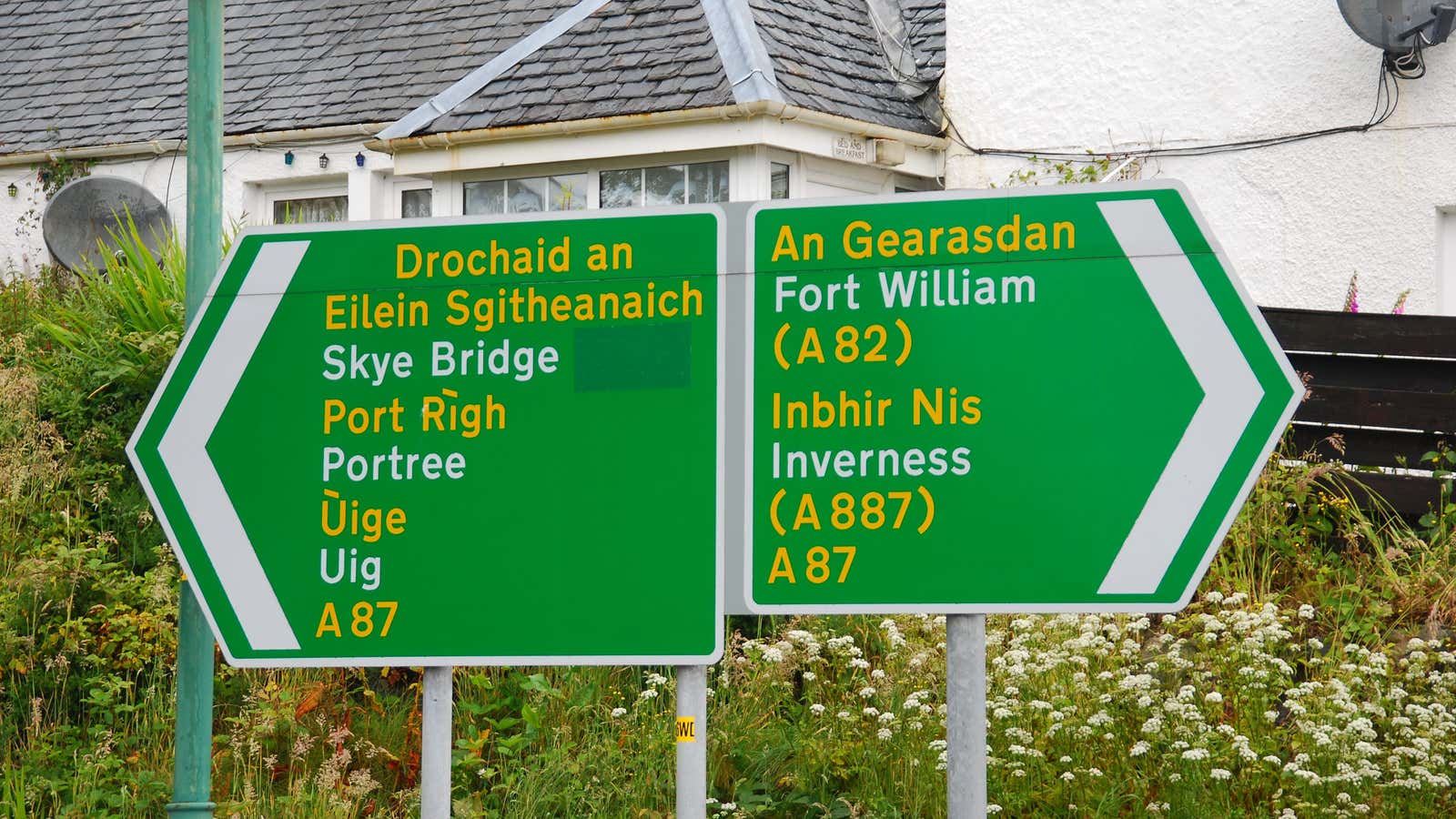The Cornish language has come back from the dead. Once officially branded “extinct” by the UN, the language, spoken primarily in Cornwall in Southwest England, was upgraded to “endangered” in 2010.
Cornish may have come back, but its situation remains precarious. Ethnologue, a research project that catalogs the world’s languages, says that there are “no known” speakers of Cornish as a first language, though it mentions an “emerging” population of second-language speakers.
Now, advocates of minority languages in the UK and Europe are warning that a British exit from the EU, or “Brexit,” could remove what little support Cornish and its linguistic counterparts already have. Voters in Britain go to the polls tomorrow (June 23) to decide whether to remain or leave the EU.
“The indirect effect of Brexit on our languages is potentially disastrous,” reads a joint letter signed by representatives of various minority languages in the UK, including Welsh, Scots, Irish, and Cornish. The letter is backed by the European Language Equality Network, a non-profit group that campaigns to protect Europe’s less-spoken languages.
“We, as representatives of indigenous lesser-used language communities in these islands, therefore conclude that in order to ensure the safety and prosperity of our languages and their communities we must remain within the European Union,” the letter continues.
There are a number of reasons to think Brexit could harm the UK’s lesser-used languages. For one, the EU has proven much more willing to promote them than the UK. The EU doles out funds to projects like the Digital Language Diversity Project, which aims to bring minority languages onto digital devices. EU funds have been used by Wales for the construction of the Welsh Language and Heritage Center on the Llŷn Peninsula.

The British government, meanwhile, cut off all funding for Cornish earlier this year, even as it seemed to be making a comeback. Leaving the EU would remove another source of funding and support for these languages. Those in favor of Brexit could argue that not contributing cash to the EU will free up funds, but as evidenced by the Cornish decision, and all the other promises made for the money now paid into the EU budget, it’s unlikely more funds would be available for promoting minority languages.
Brexit would also mean Britain distancing itself from European agreements that are designed to protect and promote such languages. The UK in 2001 ratified the European Charter for Regional and Minority Languages, with seven British languages covered: Cornish, Irish, Manx, Scots, Scottish-Gaelic, Ulster Scots, and Welsh.
By ratifying the charter, the UK made commitments to cultivate minority language use and awareness in education, media, and other areas of public life. Importantly, the charter is made through the Council of Europe, not the EU, so Brexit would not automatically nullify it. But it’s hard to image Britain strengthening commitments to other pan-European institutions after ditching the EU.
Lesser-used languages are a tricky issue. At some level, languages disappear simply because people are not using them any more, following a natural process of standardization. But so long as they are still around, inclusive governments should be giving speakers the resources they need to teach, learn, and disseminate them. The EU seems better equipped to do this than a post-Brexit Britain.
Featured image by Ingolf on Flickr, licensed under CC BY 2.0.




